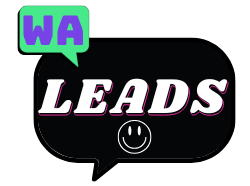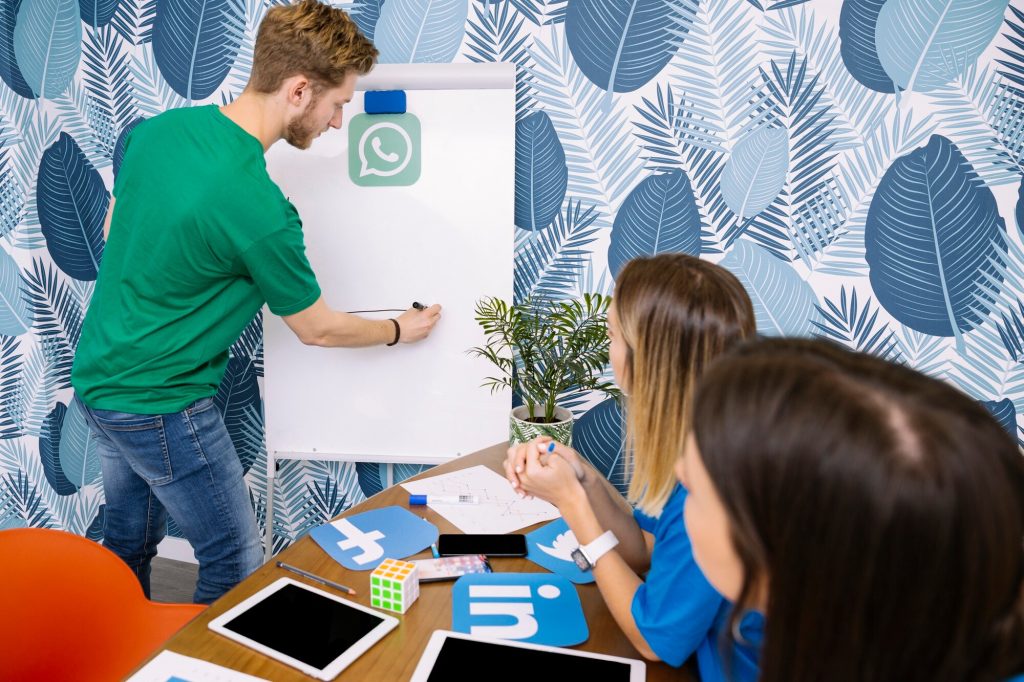Businesses are constantly looking for innovative ways to engage with their audience and convert potential leads into customers. One tool that has rapidly gained popularity for lead generation is WhatsApp. With over 2 billion active users worldwide, WhatsApp offers an immense opportunity to reach potential customers in real-time and build stronger, more personalized relationships.
If you haven’t yet embraced WhatsApp for lead generation, now is the time to start. In this blog post, we’ll highlight the top five reasons why WhatsApp is a game-changer for lead generation and how you can leverage its powerful features to supercharge your marketing strategy.
1. Instant and Direct Communication with Leads
One of the primary advantages of WhatsApp is its ability to offer instant, direct communication. Unlike traditional methods like email, which can often be delayed, WhatsApp allows businesses to connect with potential leads in real-time, ensuring that no opportunity is missed.
This immediacy is crucial in today’s fast-paced business environment. Leads want quick responses and expect businesses to be available at all times. WhatsApp provides a platform where customers can easily initiate conversations, ask questions, and receive instant answers, significantly improving the chances of converting leads into customers.
Key Benefit:
- Instant communication: Businesses can respond to inquiries in real-time, keeping leads engaged and increasing the likelihood of conversion.
2. High Engagement Rates and Open Rates
WhatsApp boasts an impressive engagement rate, with some reports suggesting that over 98% of messages sent on the platform are opened. In comparison to email marketing, where open rates are typically much lower, WhatsApp offers businesses a far better chance of getting their messages seen by potential leads.
WhatsApp messages also tend to be read almost immediately after they are received, ensuring that your marketing content and promotions are promptly acknowledged. This high engagement is essential for lead generation, as it increases the likelihood of leads taking action on your offers, whether it’s booking a consultation, signing up for a demo, or making a purchase.
Key Benefit:
- Higher visibility: With such high open rates, WhatsApp ensures that your messages don’t go unnoticed, allowing for more opportunities to convert leads.
3. Personalization at Scale
In the world of marketing, personalization has become a vital strategy for improving customer relationships and driving conversions. WhatsApp allows businesses to deliver highly personalized messages, which can significantly enhance lead generation efforts. By addressing leads by their name and tailoring messages based on their specific interests or needs, businesses can foster a sense of trust and relevance.
With WhatsApp automation tools, you can send personalized messages at scale, allowing you to reach large groups of leads while still maintaining a personal touch. This makes WhatsApp an ideal platform for scaling lead generation efforts without losing the authenticity that customers crave.
Key Benefit:
- Scalable personalization: Automate personalized messages to multiple leads, making your communication feel custom while reaching a wider audience.
4. Interactive Features to Engage Leads
WhatsApp offers a variety of interactive features that allow businesses to engage leads in more meaningful ways. From rich media like images, videos, and voice messages to interactive buttons and quick replies, WhatsApp makes it easy to create engaging and interactive content that can drive lead generation.
You can share product demos, tutorials, and promotional videos directly within the chat, keeping leads engaged and informed about your offerings. Additionally, WhatsApp’s “Click-to-Chat” feature allows businesses to add links to their website or landing pages, making it easy for leads to take action with just one click.
Key Benefit:
- Engagement through rich media: Share images, videos, and documents to engage leads and provide them with valuable information in a way that’s more compelling than text alone.
5. Cost-Effective and Easy to Use
When compared to traditional lead generation channels like cold calls, direct mail, or paid advertising, WhatsApp offers a more cost-effective solution for businesses. WhatsApp doesn’t require hefty budgets, making it an accessible platform for businesses of all sizes. Moreover, its ease of use means that even small businesses with limited resources can take advantage of its features to drive lead generation.
WhatsApp for business also provides a straightforward platform for managing conversations, automating replies, and segmenting leads for targeted campaigns. This ease of use, combined with its affordability, makes WhatsApp a practical choice for businesses looking to generate leads on a budget.
Key Benefit:
- Affordable lead generation: WhatsApp is a low-cost solution that helps businesses save on marketing expenses while still achieving effective results.
Conclusion: WhatsApp is Revolutionizing Lead Generation
WhatsApp has undoubtedly changed the way businesses interact with potential leads. Its instant communication, high engagement rates, personalization features, and cost-effective nature make it an ideal tool for driving lead generation. Whether you’re a small business just starting out or a large enterprise looking to scale, WhatsApp provides a dynamic platform to connect with leads, nurture relationships, and drive conversions.
If you haven’t already integrated WhatsApp into your lead generation strategy, now is the time to do so. By embracing WhatsApp’s unique features, you can engage more leads, improve your conversion rates, and accelerate business growth.
Get Started with WhatsApp Lead Generation Today
At waleads.app, we provide advanced WhatsApp marketing solutions designed to help you streamline lead generation. Start leveraging the power of WhatsApp to engage leads, nurture relationships, and boost conversions today!





